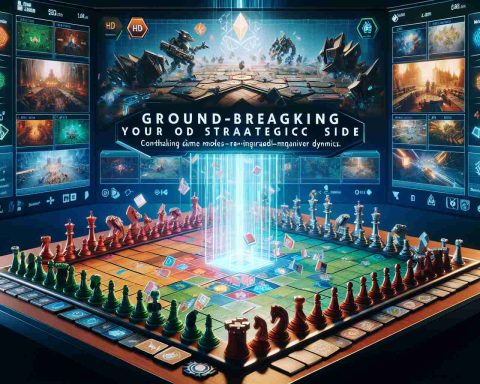The Exciting Twist in Word Games
Connections, the riveting word game offered by The New York Times, has taken the digital world by storm, ranking just behind the ever-popular Wordle. Players are presented with 16 words daily that must be skillfully organized into four distinct categories. The challenge lies not just in recognizing the words, but also in deciphering the clever categories that connect them.
The game’s editor has revealed that certain categories may employ playful language tricks such as homophones and palindromes, elevating the complexity of the game. Understanding these nuances can significantly improve your chances of success.
To enhance your gameplay, a strategic approach is recommended: if you discover several words that may fit into an emerging category, it might be wise to shift focus before committing to a guess. This tactic allows you to explore other possibilities without wasting attempts.
Each attempt in Connections not only brings excitement but also provides learning opportunities as you navigate through the differing levels of difficulty. The game features a color-coded system, ensuring players can gauge their progress and make informed decisions.
With new challenges released every day at midnight local time, the excitement never stops. Those who enjoy the thrill of words will find that Connections offers a delightful way to engage your mind and enhance your vocabulary. Ready to take on today’s challenge?
Mastering Word Games: Tips, Hacks, and Fun Facts
Are you ready to take your word game skills to the next level? Connections and other word games are not just about forming words; they require strategy, quick thinking, and sometimes a bit of creative flair. Here are some essential tips, life hacks, and interesting facts to enhance your gaming experience.
1. Understand the Types of Categories
In Connections, categories can vary greatly. They might include synonyms, antonyms, or even more abstract themes such as colors or emotions. Familiarizing yourself with common category types can give you an edge. For instance, knowing that “winter,” “summer,” “autumn,” and “spring” can categorize under seasons might help you spot them faster.
2. Use the Process of Elimination
When you’re uncertain about where a word fits, try removing words that clearly do not belong to the cluster you’re constructing. This process of elimination will help clarify your options and might reveal patterns you hadn’t noticed before.
3. Embrace the Power of Homophones and Palindromes
As mentioned, clever language tricks like homophones (words that sound alike) and palindromes (words that read the same backward and forward) can play critical roles in gameplay. Spend some time learning about these linguistic features. They might provide a fun twist to groups you’re trying to organize.
4. Improve Your Vocabulary Daily
Playing Connections regularly can improve your vocabulary. Beyond that, dedicate a few minutes daily to learn new words. Use apps or word-of-the-day calendars to enhance your lexicon. The broader your vocabulary, the easier it will be to identify words that fit within specific categories.
5. Record Your Learning Moments
Consider keeping a small journal of new words and categories you encounter in games. Writing them down can help reinforce your memory and provide a great reference point for future games.
6. Play with Friends
Try playing Connections with friends or family. Collaborative play can lead to shared insights about category reasoning and choices, making the game more enjoyable and enhancing everyone’s problem-solving strategies.
Interesting Fact: The Origin of Word Games
Did you know that word games date back thousands of years? The earliest known word game is the Riddles of the Sphinx from ancient Greece. Word games as we know them began to appear in print in the 19th century, with the advent of crossword puzzles in the 1910s, leading to the modern word games we enjoy today.
For more tips and content related to language games, check out New York Times and dive into a world of vocabulary challenges. Always remember, word games not only provide entertainment—they also sharpen our minds and deepen our appreciation for language. Happy gaming!























